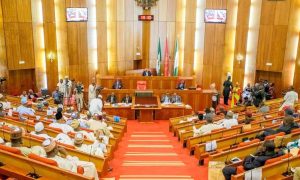This week, we spotlight developments in the global oil market, given their strategic implications for Nigeria’s fiscal health. The FG projected ₦21.0tn (c.51.3% of the total ₦40.9tn revenue target) from crude oil and gas in the 2025 budget. However, Brent crude prices fell 9.3% w/w to $64.36/bbl – a three month low – on renewed supply-glut concerns.
Key triggers include the resumption of Kurdish crude exports to Turkey after three years (180,000–190,000 bpd), OPEC+ approval for Kazakhstan to raise output to 656,000 bpd over the next eight months, and softer demand expectations amid U.S. government shutdown.
For Nigeria, this slump carries critical implications, threatening to erode the fiscal relief from non-oil revenue overperformance celebrated in President Bola Ahmed Tinubu’s Independence Day speech.
While the President highlighted non-oil revenues of ₦23.7tn vs. ₦19.9tn target (as of September), he was silent on oil revenue performance – expected to provide more than half of the annual revenue target.
As highlighted in our H2:2025 outlook report “Beyond Silver Linings: Statistical Gains, Social Strains”, Nigeria likely missed its pro-rata H1:2025 crude oil revenue target of ₦10.5tn by c.19.8%, given average actual production of 1.67mbpd at $69.96/bbl versus the budget benchmark of 2.06mbpd at $70.00/bbl.
To contextualise, the ₦55.0tn expenditure plan for 2025 – comprising ₦17.3tn non-debt recurrent, ₦14.3tn debt servicing, and ₦23.4tn capital expenditure – is anchored on ₦40.9tn projected revenues and ₦14.1tn in borrowings. A deeper shortfall in oil receipts implies a wider fiscal gap and increased borrowing.
Moreover, crude oil remains Nigeria’s largest merchandise export (c.85.0% share) and one of the cheapest FX sources, unlike foreign portfolio inflows (with c.80.0% to money market instruments) which carry interest payment burden.
While commendable progress has been made – including Q2:2025 GDP growth of 4.2% y/y (the strongest since Q3:2021) and other reform milestones highlighted by the President – risks of a prolonged oil price slump could derail fiscal aspirations in Q4:2025.
We therefore reiterate the need for business-friendly policies to catalyse non-oil sector growth and reduce vulnerability to oil shocks. With Q2:2025 growth in agriculture (2.8%), trade (1.3%), and manufacturing (1.6%) still anemic, Nigeria’s economy remains insufficiently diversified. Without significant improvements in these labour-elastic sectors, Nigeria risks overshooting its 2025 fiscal deficit target of ₦14.1tn if oil revenue underperformance persists.
Afrinvest



























